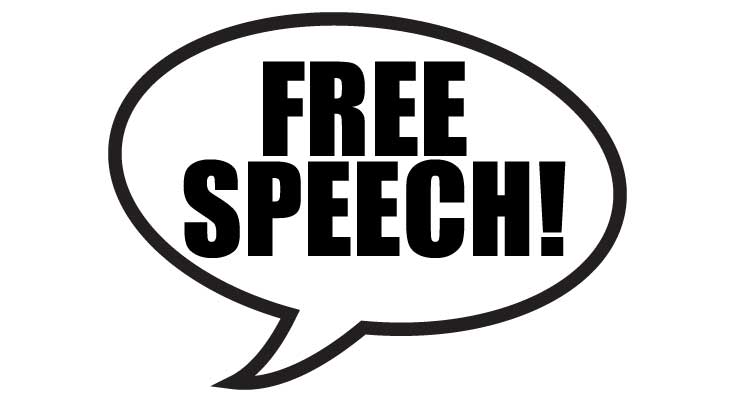
From Human Right Watch
(Moscow) – Russian authorities opened a criminal investigation against a journalist for criticizing the authorities in her comments about a recent suicide bombing, Human Rights Watch said today. Russia also fined the radio station and newsfeed websites that carried her comments.
If she is prosecuted, the journalist, Svetlana Prokopyeva, faces up to seven years in prison on charges of “justifying terrorism.” Russian authorities should immediately close the investigation, and not misuse anti-terrorism laws to stifle free speech.
“Svetlana Prokopyeva has done nothing wrong,” said Damelya Aitkhozhina, Russia researcher at Human Rights Watch. “By investigating her and punishing the media outlets she worked with, Russian authorities are sending a signal to journalists that they will not tolerate any criticism of how the authorities respond to perceived terrorism or extremism.”
Prokopyeva is a Pskov-based stringer for Radio Svoboda (Radio Liberty) and Radio Ekho Moskvy (Echo of Moscow).
On February 6, armed, masked police searched Prokopyeva’s home in Pskov for several hours and seized her phone, computer, and many documents. They took her to a police station, where she was interrogated and released. Prokopyeva’s lawyer was present during the search and interrogation. On the same day, local police conducted a “crime scene examination” of Ekho Moskvy.
On November 7, 2018, Prokopyeva’s show on the local Ekho Moskvy radio station discussed an October attack in Arkhangelsk, in which a 17-year-old boy detonated a homemade bomb inside a local Federal Security Service (FSB) building, killing himself and injuring several FSB officers. Several minutes before the bombing, the assailant, using a nickname, stated on social media that he was going to commit “an act of terrorism,” and said he was doing so because the “FSB . . . fabricates criminal cases and tortures people.”
Human Rights Watch listened to Prokopyeva’s show and read a transcript of the broadcast. Prokopyeva commented during the show that this was a teenager who grew up under Putin’s rule, which created a repressive state in which political activism is nearly impossible and civil and political rights are restricted. Prokopyeva concluded that a “ruthless state” had raised someone who saw violence as the only path. She expressed hope that the assailant was an exception, not the rule.
During the program, Prokopyeva also said that in Putin’s Russia, the individual is defenseless against this repressive system, and that even a minor incident can be enough to drag a person through the judicial grinder. Prokopyeva told Human Rights Watch that her current ordeal is a “clear illustration” of this pattern. “I feel like I’m in a horror story,” she said.
The local Ekho Moskvy station posted the show on its website, and another local media outlet, Pskovskaya Lenta Novostey (Pskov Newsfeed), published a transcript. In early December, Roskomnadzor, Russia’s federal executive authority responsible for overseeing online and media content, warned both outlets that the show contained a “justification of terrorism.” Pskov Newsfeed took it down, and the radio station followed suit. On February 6, a magistrate court in Pskov fined the radio station RUB 150,000 (approximately US$2,280) for producing or publishing materials “justifying terrorism or containing public incitement to terrorist activities” for posting the audio recording. On February 7, the same court heard an identical case against the founder of Pskov Newsfeed and issued a fine of RUB 200,000 (approximately US$3,040).
Also on February 6, police examined the premises of Ekho Moskvy in Pskov and seized some of the files from Prokopyeva’s computer.
Prokopyeva told Human Rights Watch that on February 7, police questioning was continued. Police made the journalist and her lawyer sign an agreement not to disclose substantive information about the investigation.
Prokopyeva has not yet been indicted but could be charged under Article 205.2(2) of the Russian criminal code, which penalizes public incitement to terrorist activities, public justification of terrorism, or propaganda of terrorism “using mass media or electronic and information communication networks, including the internet.”
Freedom of expression is a fundamental human right guaranteed by the Russian constitution, the European Convention on Human Rights (ECHR), and the International Covenant on Civil and Political Rights (ICCPR). Russia is a party to both treaties. International law requires limitations on free speech to be both necessary and proportionate. Failure to meet that standard violates Russia’s obligations under international law, and the actions taken against Prokopyeva and the media outlets that broadcasted or published her comments violate freedom of expression, Human Rights Watch said.
The United Nations Human Rights Committee in 2011 stated that “such offences as … ‘justifying’ terrorism, should be clearly defined to ensure that they do not lead to unnecessary or disproportionate interference with freedom of expression” and that in this regard, journalists should not be penalized for carrying out their legitimate work. Likewise, the European Court of Human Rights has noted the difficulties in countering terrorism, but also stressed that journalists’ work covering or commenting on terrorism is protected speech if it does not contain calls for violence, armed resistance, or insurrection and does not amount to hate speech.
“It is neither reasonable nor just to allege that Prokopyeva’s comments could amount to justifying terrorism,” Aitkhozhina said. “Russian authorities should stop looking for ways to chill legitimate speech, rather than engage in democratic debate.”
Leave a Reply